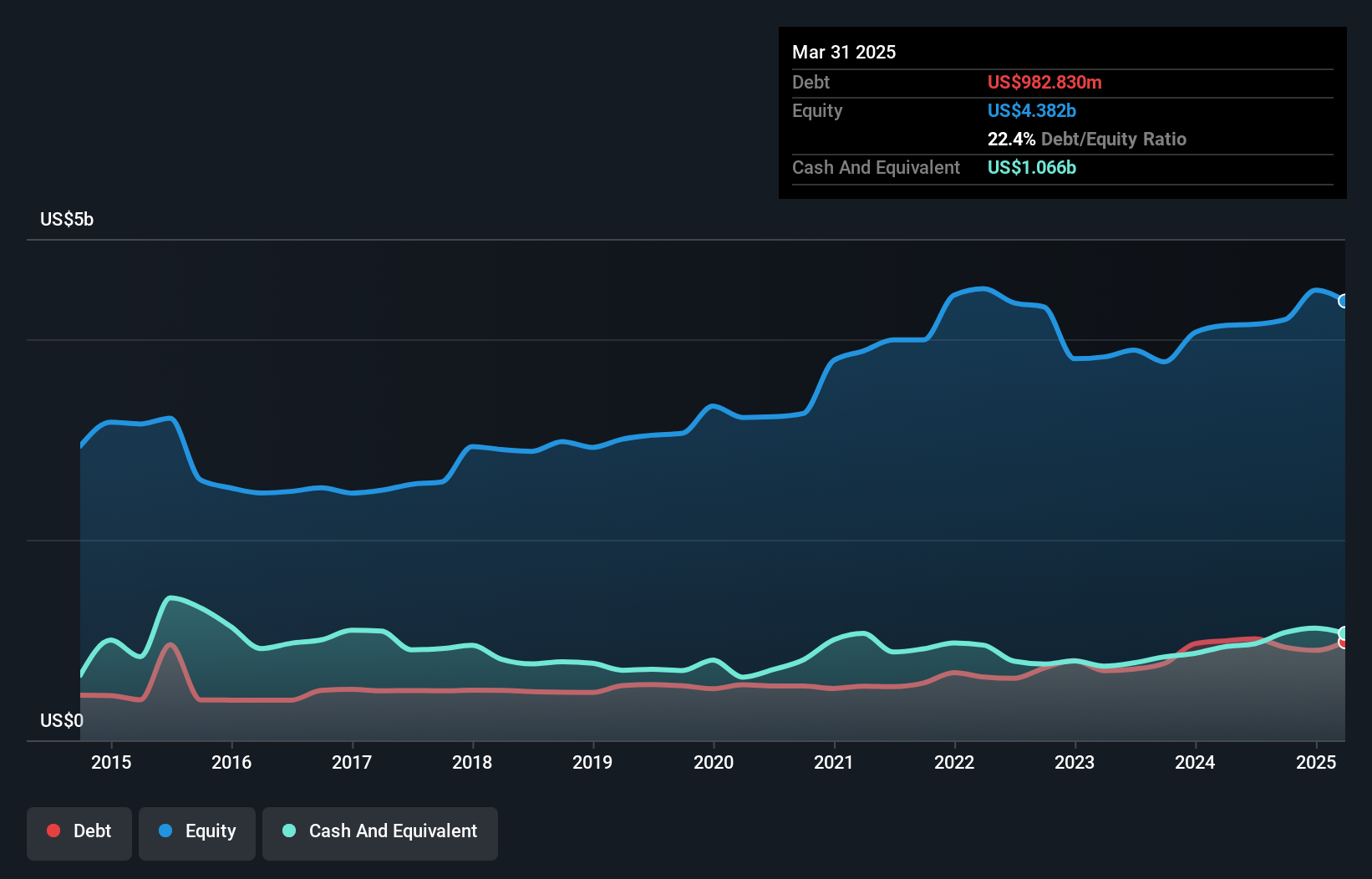Warren Buffett famously said, 'Volatility is far from synonymous with risk.' When we think about how risky a company is, we always like to look at its use of debt, since debt overload can lead to ruin. As with many other companies Graham Holdings Company (NYSE:GHC) makes use of debt. But should shareholders be worried about its use of debt?
Why Does Debt Bring Risk?
Debt assists a business until the business has trouble paying it off, either with new capital or with free cash flow. In the worst case scenario, a company can go bankrupt if it cannot pay its creditors. While that is not too common, we often do see indebted companies permanently diluting shareholders because lenders force them to raise capital at a distressed price. Having said that, the most common situation is where a company manages its debt reasonably well - and to its own advantage. The first step when considering a company's debt levels is to consider its cash and debt together.
What Is Graham Holdings's Debt?
The chart below, which you can click on for greater detail, shows that Graham Holdings had US$982.8m in debt in March 2025; about the same as the year before. But it also has US$1.07b in cash to offset that, meaning it has US$82.9m net cash.

How Strong Is Graham Holdings' Balance Sheet?
We can see from the most recent balance sheet that Graham Holdings had liabilities of US$1.25b falling due within a year, and liabilities of US$1.98b due beyond that. On the other hand, it had cash of US$1.07b and US$511.3m worth of receivables due within a year. So it has liabilities totalling US$1.66b more than its cash and near-term receivables, combined.
Graham Holdings has a market capitalization of US$3.93b, so it could very likely raise cash to ameliorate its balance sheet, if the need arose. However, it is still worthwhile taking a close look at its ability to pay off debt. While it does have liabilities worth noting, Graham Holdings also has more cash than debt, so we're pretty confident it can manage its debt safely.
Check out our latest analysis for Graham Holdings
Notably, Graham Holdings's EBIT launched higher than Elon Musk, gaining a whopping 237% on last year. There's no doubt that we learn most about debt from the balance sheet. But it is future earnings, more than anything, that will determine Graham Holdings's ability to maintain a healthy balance sheet going forward. So if you're focused on the future you can check out this free report showing analyst profit forecasts.
Finally, a company can only pay off debt with cold hard cash, not accounting profits. Graham Holdings may have net cash on the balance sheet, but it is still interesting to look at how well the business converts its earnings before interest and tax (EBIT) to free cash flow, because that will influence both its need for, and its capacity to manage debt. Looking at the most recent three years, Graham Holdings recorded free cash flow of 36% of its EBIT, which is weaker than we'd expect. That weak cash conversion makes it more difficult to handle indebtedness.
Summing Up
Although Graham Holdings's balance sheet isn't particularly strong, due to the total liabilities, it is clearly positive to see that it has net cash of US$82.9m. And it impressed us with its EBIT growth of 237% over the last year. So we are not troubled with Graham Holdings's debt use. Over time, share prices tend to follow earnings per share, so if you're interested in Graham Holdings, you may well want to click here to check an interactive graph of its earnings per share history.
Of course, if you're the type of investor who prefers buying stocks without the burden of debt, then don't hesitate to discover our exclusive list of net cash growth stocks, today.
New: Manage All Your Stock Portfolios in One Place
We've created the ultimate portfolio companion for stock investors, and it's free.
• Connect an unlimited number of Portfolios and see your total in one currency
• Be alerted to new Warning Signs or Risks via email or mobile
• Track the Fair Value of your stocks
Have feedback on this article? Concerned about the content? Get in touch with us directly. Alternatively, email editorial-team (at) simplywallst.com.
This article by Simply Wall St is general in nature. We provide commentary based on historical data and analyst forecasts only using an unbiased methodology and our articles are not intended to be financial advice. It does not constitute a recommendation to buy or sell any stock, and does not take account of your objectives, or your financial situation. We aim to bring you long-term focused analysis driven by fundamental data. Note that our analysis may not factor in the latest price-sensitive company announcements or qualitative material. Simply Wall St has no position in any stocks mentioned.
About NYSE:GHC
Graham Holdings
Through its subsidiaries, operates as a diversified holding company in the United States and internationally.
Solid track record with excellent balance sheet.
Market Insights
Community Narratives



